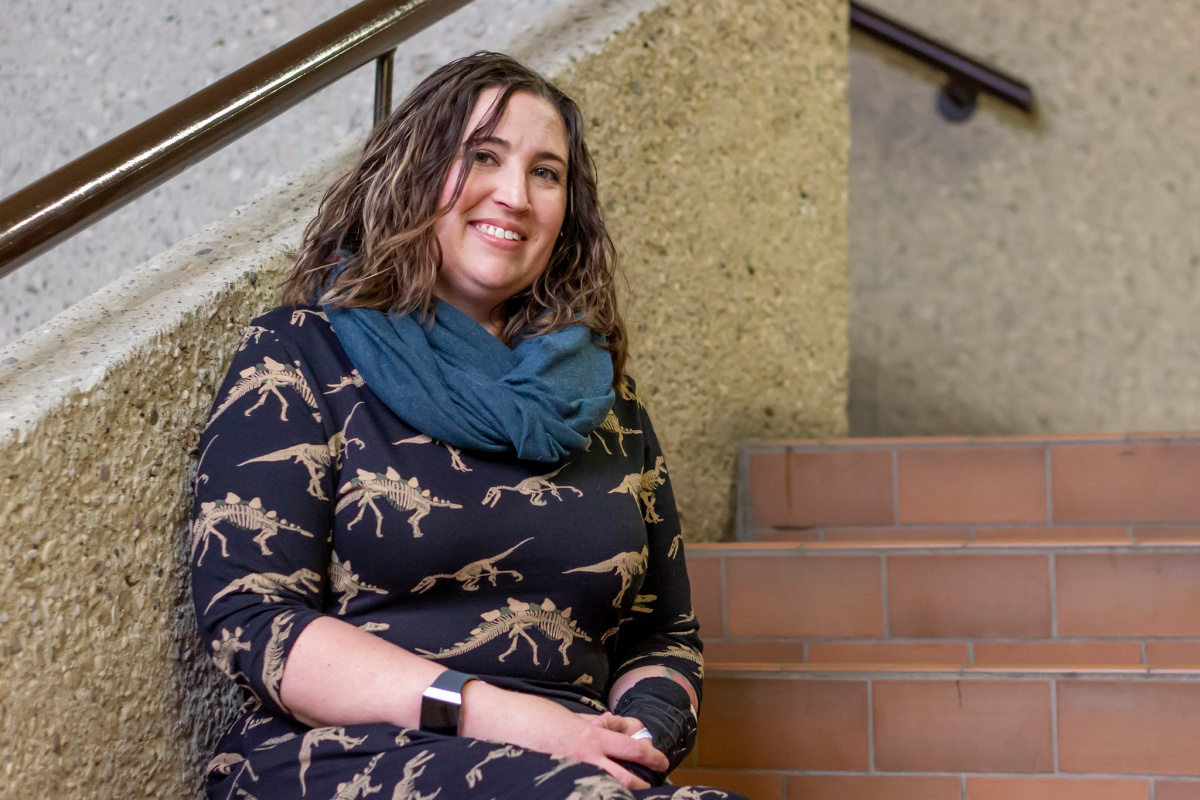Even though Alberta’s Teacher Quality Standards place an emphasis on including Indigenous histories and knowledges, many teachers continue to be unsure of how to present such material, or of the role of settler colonialism in nation-building, according to a PhD candidate in Educational Policy Studies.
Danielle Lorenz will present her dissertation research on how settler-colonialism has manifested in Alberta classrooms at the 2019 Canadian Society for the Study of Education (CSSE) Annual Conference on the University of British Columbia campus in Vancouver, June 1 - 5. She is one of 46 U of A graduate students and a number of Education faculty presenting and sitting on panels during the event, which is Canada’s largest gathering of education researchers, scholars, and practitioners.
Lorenz conducted an anonymous online survey and follow-up interviews with registered members of the Alberta Teachers’ Association. The questions she asked focused on the Teacher Quality Standards and proposed curriculum changes to include more Indigenous content. Responses showed that teachers tended to lack confidence in their own knowledge and ability to teach this material, and felt that professional development opportunities, resources, and administrative support to improve that knowledge weren’t in place.
“The conclusion of my research is that teachers who are non-Indigenous are not realizing how much settler colonialism unpins everything because settler-colonial processes helped create Canada as a country,” Lorenz said.
“We have teachers saying they want to make things better for Indigenous students, but they don’t understand the lived realities of Indigenous students or their Indigenous colleagues. That creates a significant issue in classrooms because non-Indigenous teachers may be unknowingly committing racist microaggressions in their workplace, or perhaps certain biases may be coming into play when they’re teaching Indigenous children.”
Lorenz said some of her research replicates results from other jurisdictions in Canada, which indicates that challenges around educating about Indigenous topics, multiculturalism and tolerance are not only long-standing but haven’t shown much improvement. But, she added, these are social issues that may be beyond the capabilities of progressive policy documents and curriculum changes to address.
“If teaching on its own led to tolerance and acceptance, we would have gotten further than where we are,” Lorenz said. “It’s not just what’s being taught in the classroom that needs to change. There needs to be a larger societal shift in terms of understanding that not only does Canada have a colonial past, but that the country and its people continue to maintain and replicate the same ideals that existed hundreds of years ago.”
Personal connections drive social justice scholarship
Originally from Ontario, Lorenz said she came to the U of A to pursue graduate work with a specific professor, but found that the Social Justice and International Studies in Education (SJI) specialization offered her more opportunities to broaden her understanding of different educational contexts. She said that the diversity of backgrounds, perspectives, and research focuses that span the globe—from New Zealand to India to Greece to Brazil—touching on race, gender, sexuality, migration, Indigenous perspectives, art praxis, and more, were unlike any other programs she considered applying to.
“I came here to work with Makere Stewart-Harawira because her work on water and traditional knowledge really appealed to me given the work I had completed in my master’s degree. Because of her varied experience in classrooms, she’s been able to advise me on topics such as Indigenous education and theory—educational, sociological, Indigenous, and cultural studies. But I have also appreciated learning from professors whose work and my own don’t cross paths,” Lorenz said.
“SJI is a specialization that could readily transfer to other academic disciplines because the topics covered are so diverse and, though they take place within education, education isn’t necessarily the focus.”
What unites the research and scholarship done in SJI, Lorenz said, are an orientation toward community and a personal connection to the researcher’s subject area.
“Some of my colleagues are doing their research in their communities and using their degree to help the community to achieve its own goals,” she said. “I think the focus on community, even if we’re not directly working within a community, are threads that tie everyone to their research topic and their focus. It seems like, for all of us, there’s an interest in what we’re doing because of our own life experiences.”
Danielle Lorenz will present on “Existing Always-Already: Settler Colonialism with/in Alberta Education” on Tuesday, June 4 at 1:30 p.m. in Neville Scarfe Building (SCRF) 202 on the UBC campus as part of CSSE’s XVLII Annual Conference.
